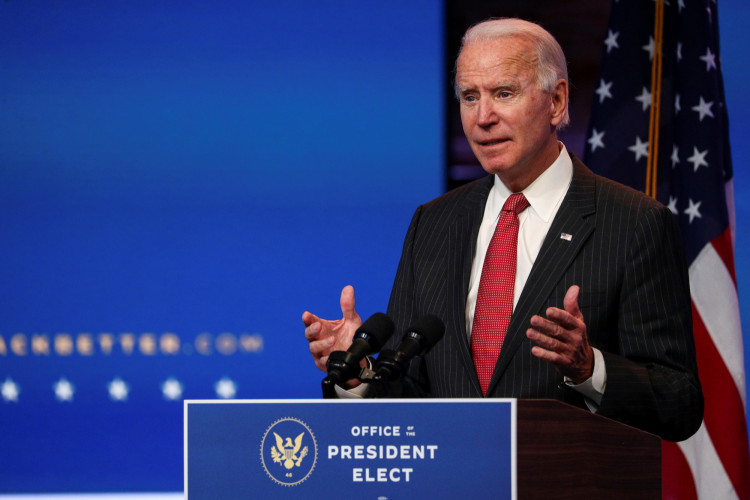President-elect Joe Biden will consult with U.S. allies on how to end President Donald Trump's trade war against China and won't immediately undo the tariffs imposed on the world's second largest economy.
Trump ignited his trade war in 2018 to force China to make changes to what he claimed were "unfair trade practices" and intellectual property theft. China retaliated with tariffs equivalent to the $34 billion in levies imposed on it by the U.S.
A preliminary phase-one trade deal signed Jan. 15, 2019, eased hostilities but a phase-two deal will have to be negotiated by the incoming Biden administration.
Studies have shown Trump's tariffs against China and other trading partners slashed U.S. real income and adversely affected the country's gross domestic product.
Biden said he first wanted to conduct a full review of the phase-one trade deal before taking any action on either removing or diminishing the Trump tariffs.
"I'm not going to make any immediate moves, and the same applies to the tariffs. I'm not going to prejudice my options," Biden told The New York Times.
Biden also said he would consult with U.S. allies in Asia and Europe "so we can develop a coherent strategy" before doing anything about the tariffs.
"The best China strategy, I think, is one which gets every one of our - or at least what used to be our - allies on the same page," Biden said.
"It's going to be a major priority for me in the opening weeks of my presidency to try to get us back on the same page with our allies.
Phase one requires China boost its purchases of U.S. goods and services by $200 billion from 2020 to 2021 compared with the 2017 levels of $130 billion in goods and $56 billion in services.
As part of this deal, the U.S. will slash the tariffs on China to 7.5% from 15% on $120 billion in China goods effective Feb. 14. The 25% U.S. levy on $250 billion of Chinese goods will remain, however. Chinese imports of $370 billion will see no reduction to their tariffs. The U.S. also agreed to suspend an additional $160 billion in tariffs.
China suspended its planned retaliatory tariffs. It also reduced tariffs on $75 billion worth of goods Feb. 5.
Trump's trade war against China is part of his "America First" economic policy. The aim of this is to reduce the U.S.'s trade deficit by shifting American trade policy from multilateral free trade agreements to bilateral trade deals. The policy also saw Trump levy tariffs against European countries.
One of Trump's first acts as president was to pull the U.S. out of the Trans-Pacific Partnership, a trade agreement negotiated by the Obama administration with 11 other countries. The agreement excluded China and was critical to Obama's efforts to boost U.S. influence in Asia.






